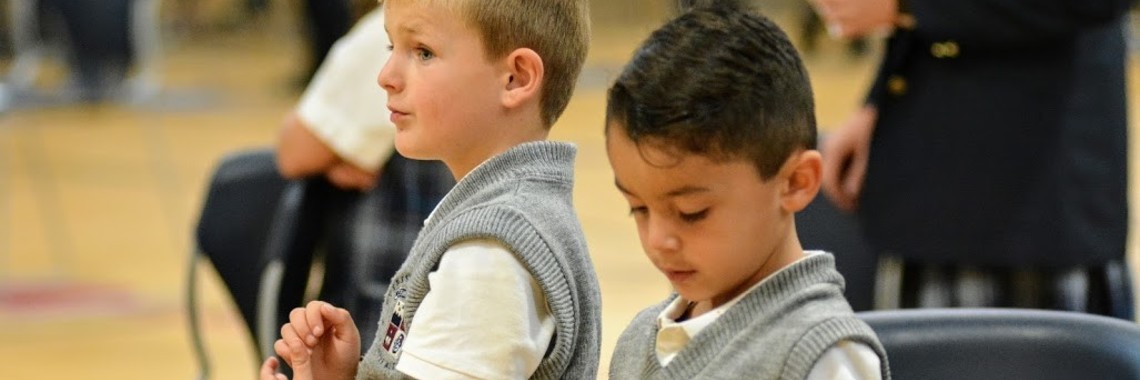Our Kindergarten experience is a full-day program offering challenging learning activities that create the building blocks for educational success while fostering confidence and essential qualities for well-rounded, emerging leaders.
Academic Growth: The Building Blocks for Success
- Perform basic computations including addition and subtraction
- Apply basic reasoning skills through word problems
- Develop reading, comprehension and vocabulary skills
- Use phonics to decode words for reading, writing and spelling
- Develop penmanship technique and write upper and lower case letters
- Pronounce and comprehend basic Spanish words
- Basic science principles of health and nutrition, experimentation, reasoning and inquiry
Leadership Skills: Essential Qualities Beyond Academics
- Virtue building to acquire self-motivation
- Manners, etiquette and organization
- Precision in following directions and completing tasks
- Classification and organization of information for critical thinking
- A foundation of biblical principles and relationship with God
- Positive interaction with others to develop a sense of teamwork
- Introductory public speaking
KINDERGARTEN FACTS
Low student to teacher ratio
Academic competitions including: spelling and geography bees, poetry recital and catechism contest.
Tips for Parents
Kindergarten-aged children need guidance and support to gain the responsibility needed to be successful at school.
- Allow your child to take on personal responsibilities and to face the rewards and consequences for his/her actions.
- Encourage independence - after the first few weeks of school, allow your child to walk to class by him/herself unless it is absolutely necessary for you to be with them.
- Remind your child that you know he/she is capable of doing well in school.
- Help your child understand that you will back up and not undermine the teacher’s rules in the classroom.
- When reading to your child, ask questions about what has been read. Have him/her predict what will happen in the story. Also, ask about lessons learned from stories that have been read to promote active listening.
- Minimize television viewing and computer games on school days. Promote active outside play, arts and crafts, and encourage the use of the imagination.
- Children thrive on consistency, so have a set structure in your morning and evening routines making sure your child goes to bed on time.
- Check your child’s homework and work with your child to help him/her complete their homework.
- School starts promptly at 8:00 am so give your child enough time to get to school and be ready to begin the day before the first bell rings.
- Communicate with your child’s teacher any questions or concerns you may have. You are your child’s first educator and his/her teacher will always support you in that role.

